Transsexual Andréa de Mayo created an empire based on prostitution, made history in philanthropy and changed her social name after her death
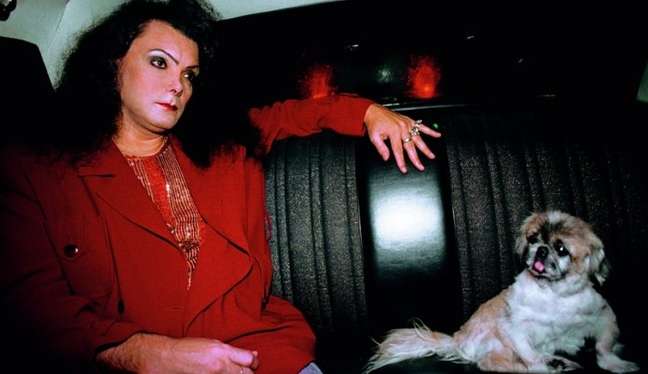
At a time when difference had no place, the streets of São Paulo met a “Mighty Big Boss” who tried everything before following the vocation in which he was so successful: marginalization. Andrea de Mayo (1950-2000) was synonymous with many things: assault, exploitation, prostitution, pimping and blackmail. And some of his victims hold grudges to this day.
Born into a humble family, Andrea de Mayo accompanied the cleaning mother in her TV jobs, and it was behind the scenes of the media, in the immensity of the entertainment universe, that she saw the desire to pursue an artistic career awaken. Over the years, she has changed the shoes that shone on the streets of Arouche in downtown São Paulo for stages.
His next stop was the “Programa do Bolinha”, but despite the loud voice, it was not successful. She was male, but too female for that time.
Certain of her transsexuality, and without fear of what she would have to face, she went on the so-called “beauty journey”. In Paris, France, she became Andréa de Mayo.
“Since it was forbidden to perform sex reassignment surgeries in Brazil, they [transexuais] he went to Europe to have silicone implants and hormonal treatments “, explains Chico Felitti, who studied the life of the transvestite for the audio book ‘queens of the night‘.
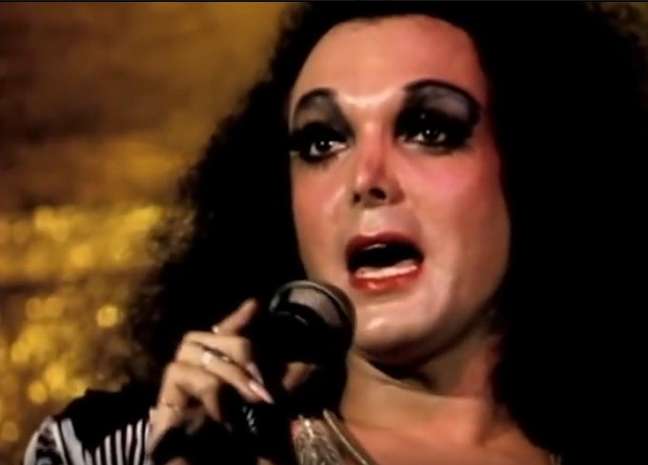
Queen of the Sao Paulo metro
Back in Brazil, it was in the São Paulo subway that Andrea de Mayo saw the opportunity to develop professionally and artistically. With commitment and dedication, he starred in some low-budget productions and even won the role of Geni in Chico Buarque’s “Ópera do Malandro”, in the 1979 production.
“She was the first to play the character, she’s too honorable,” adds Felitti.
An activist for LGBT rights, she has been constantly invited to participate in television programs, such as the quick-change competitions promoted by Silvio Santos and the ‘Free Program’ presented by Serginho Groisman. In the latter, he conducted an emblematic debate with Afanásio Jazadji, a politician who has been an outspoken critic of LGBT people and even declared that homosexuals should be removed from social life.
Although important for movement LGBTthe actions did not cost Andréa her life.
“If there was not even a job for parents in the 1970s, imagine a transsexual,” he notes.
In an attempt to earn a living and without being accepted anywhere, Andréa de Mayo had to resort to the “underworld”. The nightlife of São Paulo was a fascinating but dangerous place, dominated by the stories that flowed through the mouths of “girls” and homosexuals about the transsexual pimp. Jacqueline Blah Blah Blah.
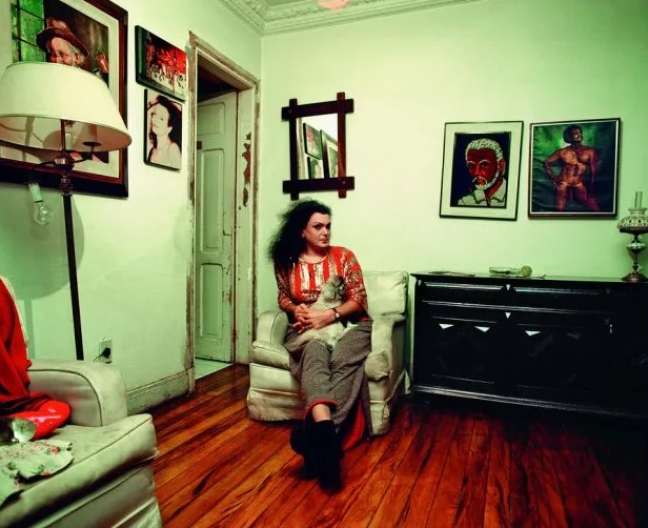
“The factory to make money”
Tough, tall and livid-looking, Andréa de Mayo blackmailed, assaulted and scared many people to be respected among prostitutes in downtown São Paulo. With the “fee” she charged the girls, she began to commit. According to Chico Felitti, there are reports that the Powerful Big Boss he owned more than 15 apartments to his name.
With this range of properties, Andréa created her own money-making factory, or rather her own family. With a good premise, she took the “girls” off the street, made them sleep in their apartments, sheltered from criminals and customs officers, who used to frame transvestites for “wandering”.
But Andrea also exploited her “daughters”, as she called them. She asked for sheets, food, a roof. He sometimes took the girls to Europe and forced them to have silicone implants and pay for plane tickets, so that they could never pay these bills, much less leave prostitution or “their mother’s” home.
When she did not send her “daughters” abroad, Andréa herself acted as a “bombadeira” and clandestinely applied industrial silicone. Reports indicate that at least two transvestites have died at her hands.
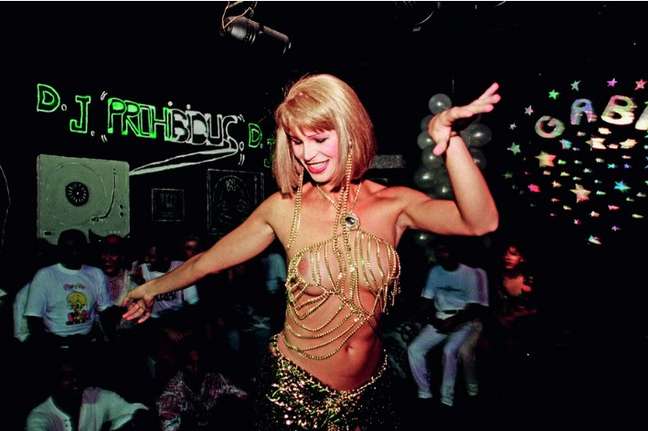
a business transvestite
The debtors did not get over Andréa de Mayo unscathed. When not killed, survivors describe beatings and stabbings. The fact is that the great mother was never unprepared. On one side she carried a nunchaku, a Chinese melee weapon; on the other was her faithful squire, the Pekingese by name Al Capone.
A business transvestite, Andréa de Mayo partnered with Valdemir Tenório de Albuquerque, aka Val, to open Val-Improviso, a legendary concert hall for transvestites in Marquês de Itu, in the Sé region. The audience at home was varied. According to Erika Palomino, journalist of the Folha de S.Paulo at the time, cazuza he was one of the regulars of the house and almost always ended the evening in a club of guitars with which he refused to leave.
Years after, Andrew opened his own nightclub, the of Forbidden, in Amaral Gurgel, region of the Republic. At home, she and naked waiters welcomed the entire audience.
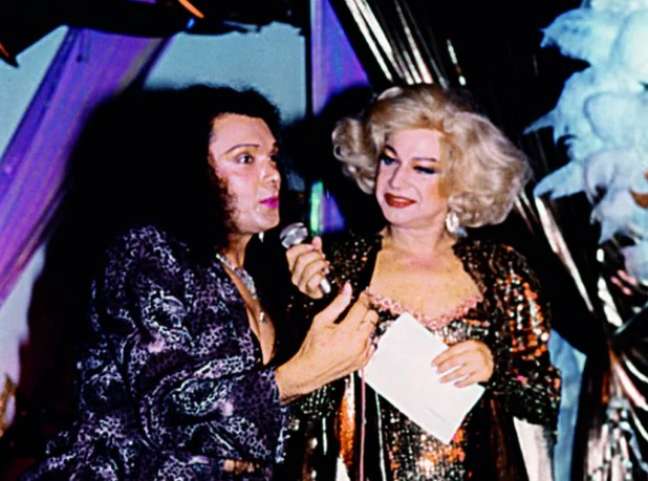
“He died without an ass, as he wanted”
Despite the gloomy background behind the story, Andrea de Mayo it had a strong philanthropic side. He has fought prejudices against LGBT people, helped charities, distributed basic articles in favelas, as well as making a series of generous donations to the Charity House of Brenda Lee (1948-1996), transsexual activist considered the angel of transvestites.
“At a time when many people were dying AIDScontributed to breaking this scenario, “says the researcher.
Unstoppable militant and vigilant matriarch, Andrea got tired of mounting himself over time. Letting go of her hair and applying a simple lipstick became gestures and signs of good humor for those who lived with her. The silicone she had applied on her trip to Paris, affectionately referred to by herself as “a beetle on each leg”, has been removed. Her big ass was also left behind.
What Andrea de Mayo wanted was a life away from the night and more serene. He rested the day after the procedure to remove the silicone in his butt, possibly due to a pulmonary embolism. Since he had signed a disclaimer regarding the risk of the surgery, the authorities dismissed the case.
Soon she, surviving six blows to the hand, arms and legs, ordered by an ex-boyfriend; who witnessed gun battles and bodies thrown on the Badala sidewalk by Proibidu.
“She died as she wanted, with no ass. The silicone was already bothering her,” summarizes Felitti.

The “archive deletion”
After his death, the story of Andrea de Mayo it began to undergo what Chico Felitti calls “archive cancellation”. Despite having been successful in hiding in São Paulo with his social name, all medical and police documentation was carried out in his first name, Ernani dos Santos Moreira Filho.
This institutional violence has created a series of information gaps on the life of the transvestite. Did he really commit such crimes? Why weren’t they warned? How big is your luck? Where was she buried? Under what name was she buried? What did he actually die of?
“Andrea’s story is practically oral, there are few records. She represents a group that was afraid of the system, afraid of being scammed and extorted by police or bank employees. These people did not pay taxes. They slept with money in their pockets. . mattresses., bought convertible and apartments in cash, in cash “, explains Chico.
What happened to Andrea de Mayo after his death, he calls attention to a problem that affects trans people and transvestites in general. After all, where do trans people go after they die?
Bruno da Mata, head of public policy, researcher and author of the work ‘The meaning of the name’, strives to answer:
“They just disappear. Because they live on the edge of life, they cease to exist, as the state doesn’t see them as they really are,” he says.
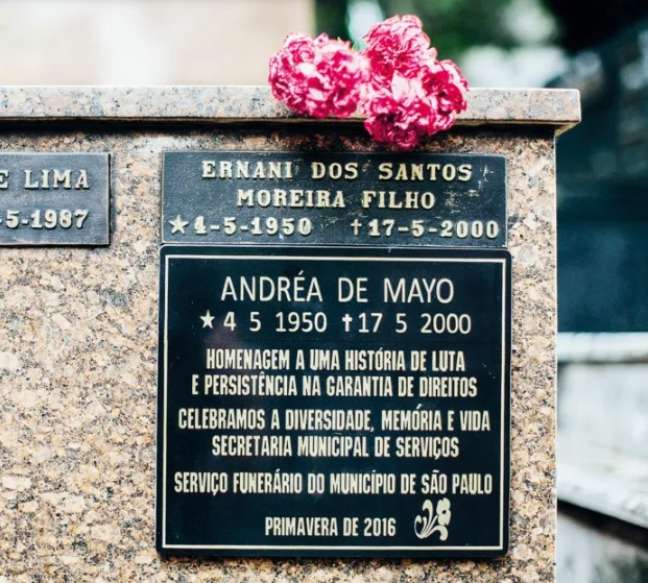
No right to cry
For da Mata the cemeteries represent more than a funeral place: they are a reflection of the memory of the city. In it there are all kinds of people, citizens, influential families, artists, among other personalities who have marked that society in some way. However, the funeral service is still far from welcoming all these stories.
“During my study, I noticed that trans people underwent a kind of silencing, because when they died, despite being entitled to a social name, the funeral system buried them with a civil name. That is, trans people simply disappeared. from the history of the city. If someone wanted to take a flower to the grave or to know where it was buried, there was no way of knowing. They had no right to cry, “he adds.
In 2016, the San Paolo funeral service launched an action to recover memories, with a plaque donated by Professor Renato Cymbalista, of the USP. Andrea de Mayo had his name corrected.
“Even though the gravestone now has his social name, you still have a death certificate with his civil name, police report with male gender. That is, there are a number of state protocols and documents that wipe these people out of history. We have this case of Andrea de Mayo for example, but how many trans people have been buried and nobody knows where they are? “, asks da Mata.

Don’t be afraid of Andrea de Mayo
the story of Powerful Big Boss it is a tale of violence and crime, all wrapped up in the network of glamor and prejudice that was the nightlife of the 70s and 80s. But it should also be recognized for its philanthropy, for its activism for rights. LGBTbut mainly for the right to be remembered.
According to psychologist Jéssica Souza, people with a history similar to that of Andrea de Mayo they may, yes, end up resorting to wrongdoing to survive, as she did. But it is important not to trivialize or generalize. Also, it’s important to understand that people aren’t just good or bad, and that sexuality or identity has nothing to do with crime.
“The life story of Andrea de Mayo confirms that he may have shifted his entire repertoire of negative life into these criminal acts. However, her personal demands, which implied this relationship she developed with crime, are far from justified by her sexuality, “she adds.
* With editing by Estela Marques
Source: Terra
Camila Luna is a writer at Gossipify, where she covers the latest movies and television series. With a passion for all things entertainment, Camila brings her unique perspective to her writing and offers readers an inside look at the industry. Camila is a graduate from the University of California, Los Angeles (UCLA) with a degree in English and is also a avid movie watcher.








